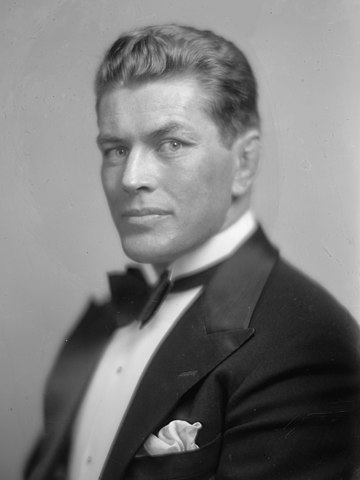Gene Tunney, born on May 25, 1897, in New York City, was a legendary American boxer who rose to prominence in the early 20th century. His journey in the world of boxing is marked by resilience, strategic prowess, and triumphs against some of the greatest fighters of his time. Here’s an overview of the rise and triumph of Gene Tunney:
Early Years and Military Service:
- Amateur Success:
- Tunney began his boxing career as an amateur, achieving success in various weight classes. His skill and dedication soon caught the attention of boxing enthusiasts.

- Tunney began his boxing career as an amateur, achieving success in various weight classes. His skill and dedication soon caught the attention of boxing enthusiasts.
- Military Service in World War I:
- Tunney served in the U.S. Marine Corps during World War I, and his time in the military contributed to his physical conditioning and mental toughness.
Professional Career:
- Rise through the Ranks:
- Tunney turned professional in 1915, and he steadily rose through the ranks in the light heavyweight and heavyweight divisions. His skillful boxing style and ring intelligence set him apart.
- Victory over Jack Dempsey (September 23, 1926 – “The Long Count” Fight):
- One of the most iconic moments in Tunney’s career was his victory over the legendary Jack Dempsey on September 23, 1926. In the rematch known as “The Long Count” fight, Tunney used his tactical skills to outbox Dempsey and win the heavyweight title.
The Long Count Fight:
- Tactical Brilliance:
- Tunney’s strategy in “The Long Count” fight involved using his technical skills to outbox Dempsey. In the seventh round, Dempsey knocked Tunney down, but due to confusion over the count, Tunney was given extra time to recover.
- Retaining the Title:
- Tunney recovered, regained control of the fight, and went on to win by unanimous decision. The victory solidified Tunney’s status as the heavyweight champion of the world.
Retirement and Legacy:
- Retirement as Undefeated Champion:
- Gene Tunney retired as the undefeated heavyweight champion in 1928. His record included victories over some of the era’s greatest fighters.
- Post-Retirement:
- After retiring from boxing, Tunney focused on business ventures and served in the U.S. Navy during World War II. He also worked as a successful businessman and became involved in philanthropy.
Honors and Recognition:
- Induction into the International Boxing Hall of Fame:
- Gene Tunney was posthumously inducted into the International Boxing Hall of Fame in 1990, recognizing his contributions to the sport and his remarkable career.
- Legacy as a Boxing Intellectual:
- Tunney is often remembered not only for his physical prowess but also for his intellectual approach to boxing. He emphasized strategy, conditioning, and meticulous preparation.
- Authorship:
- Tunney wrote a memoir titled “A Man Must Fight,” in which he shared insights into his boxing career and his views on the sport.
Gene Tunney’s rise to boxing stardom and his triumphs in the ring are integral parts of the sport’s history. His strategic brilliance, disciplined approach, and achievements against formidable opponents contribute to his legacy as one of the greats in boxing.











